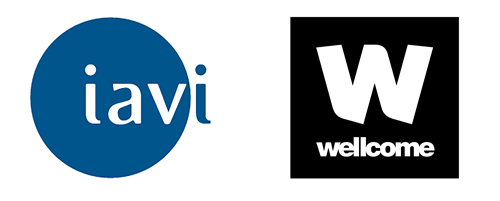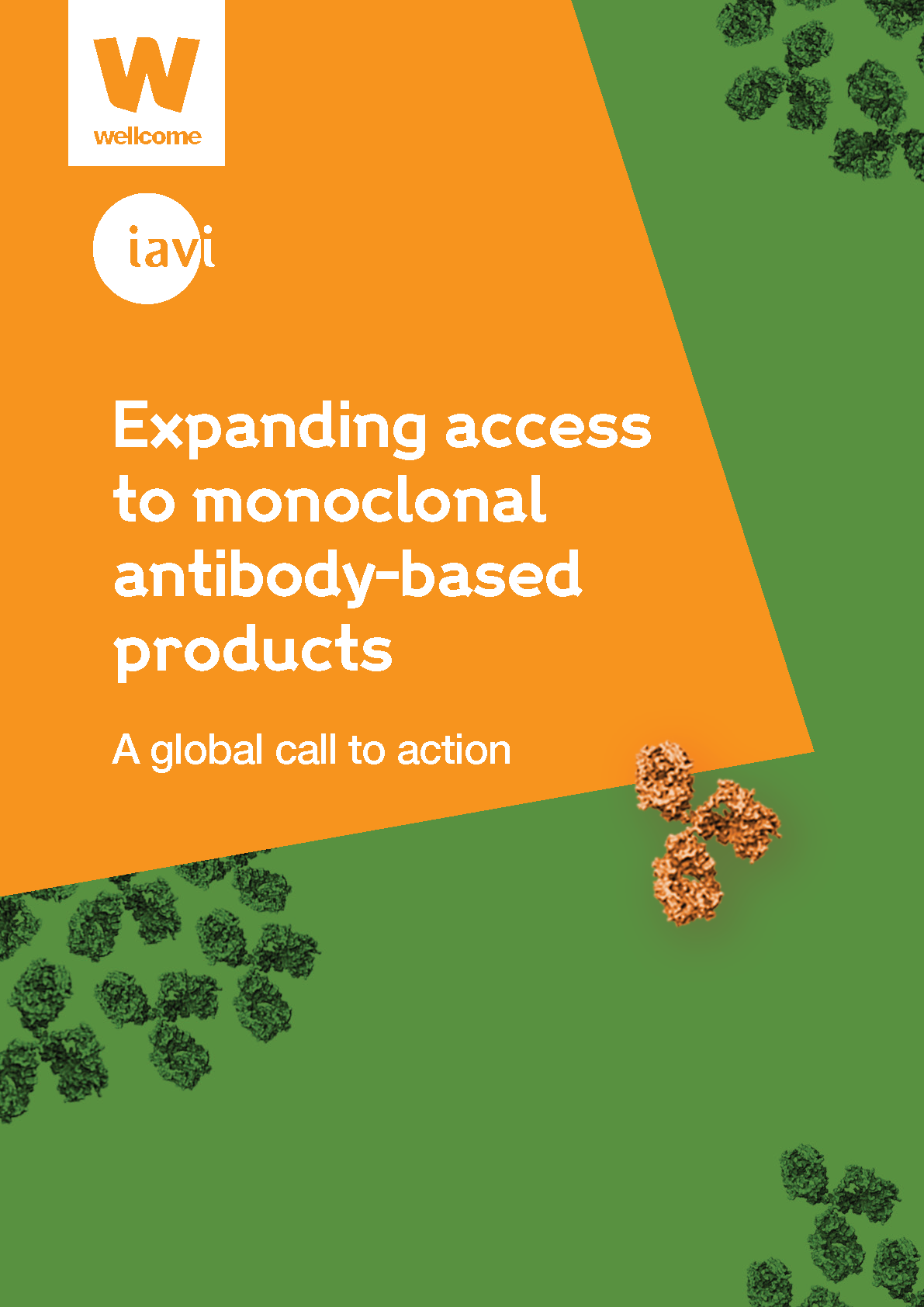August 10, 2020
IAVI and Wellcome issue a global call to action: Monoclonal antibodies for COVID-19 and other diseases could save millions of lives

- Organizations across the public and private sectors must join forces to make global access to transformative monoclonal antibody products a priority and a reality.
- The groups highlight four areas of action: Increase Awareness, Expand Availability, Apply Innovations, and Create New Business Models.
- The time to act is now to ensure equitable global access to potentially life-saving monoclonal antibody therapies for COVID-19 and other diseases.
NEW YORK and LONDON — AUGUST 10, 2020 — Today IAVI, a nonprofit scientific research organization, and Wellcome, the independent global health foundation, are urging the global health community, from pharmaceutical companies to academic institutions to governments, to join efforts to make monoclonal antibodies (mAbs) globally accessible. The organizations issued this call with the publication of “Expanding Access to Monoclonal Antibody-Based Products: A Global Call to Action.” This publication demonstrates that despite the transformative impact that mAbs have had in the treatment of a range of life-threatening diseases, they are currently not available to people living in low- and middle-income countries (LMICs).
The call to action couldn’t come at a more critical time: the novel coronavirus pandemic has triggered unprecedented collaborative efforts to accelerate research and development of mAbs for COVID-19 treatment and prevention. mAbs have the potential to play an important complementary role to COVID-19 vaccines, especially for those individuals who, due to age or medical conditions, may not benefit from a vaccine. Should mAbs prove to be effective tools in the COVID-19 response, it will be essential to develop new approaches to ensure their timely global availability at scale in order to help end this pandemic. The call to action provides clear guidance for the global health community by identifying opportunities to enable and accelerate equitable global access to COVID-19 mAbs. If successful, the new approaches and partnerships that arise for COVID-19 can also set precedents to support increased global access to mAbs targeting many other diseases.
Monoclonal antibodies are one of the most powerful tools in modern medicine. These proteins, derived from human immune cells, act specifically against targets ranging from cancerous cells to viruses and bacteria, or alter precise immune pathways to augment an individual’s ability to fight cancer or block aberrant immune responses in autoimmune diseases. Millions of people have benefited from mAb-based therapies to treat non-communicable diseases in the 30 years since the first one was licensed. For a sizeable and growing number of diseases, mAb therapies are not only significantly more effective than previously available therapies, they are often better tolerated as well. mAb products have dramatically improved survival rates for people with breast cancer, melanoma, lung cancer, and other difficult-to-treat cancers. They have provided new, more effective approaches for treating a range of autoimmune diseases. In addition, mAbs have been developed for several infectious diseases, and active research efforts are underway to evaluate their potential to prevent and treat a number of globally relevant infectious diseases including Ebola, HIV, and, as mentioned, COVID-19.
But mAbs, which are among the most expensive pharmaceutical products in the world to develop and produce, are inaccessible for most of the world’s population. And the few mAbs that are licensed in LMICs are often unavailable, due to affordability concerns or lack of enabling policies and structures in public health systems. This major access gap must be addressed because mAbs represent a growing proportion of the product pipelines of pharmaceutical companies. Further, as many of the diseases targeted by mAbs disproportionately affect people living in LMICs, developing effective new solutions for increased global access to mAbs is imperative.
“Monoclonal antibodies are critical tools to treat a wide range of diseases — from cancer to snakebite, and potentially COVID-19. Yet they remain among the most expensive medicines in the world, leaving the majority of people unable to afford or access them. This new report, from IAVI and Wellcome, sets out an achievable roadmap of actions to make equitable access to antibody therapies a reality, but global collaboration is paramount through new policy, business models, and innovation.
“In the face of the ongoing pandemic, it is even more critical to take lessons from this report and break down barriers to accessing these life-saving tools. We must ensure that any potential advances to treat COVID-19 with monoclonal antibodies are made equally accessible around the world, without exceptions,” said Dr. Jeremy Farrar, director of Wellcome.
“Life-saving monoclonal antibodies that are now mainstays of medical care in high-income countries are largely unavailable, and often prohibitively expensive, in LMICs, where rates of non-communicable diseases are sharply rising and where 70% of global deaths from cancer occur. Antibodies in development are also poised to play a significant role in preventing and treating infectious and neglected diseases, which often disproportionately affect those living in poverty. The crisis with COVID-19 is a once-in-a-century opportunity to develop new solutions to overcome the profound inequities in access to monoclonal antibodies and enable these promising solutions to be globally used to protect people from many diseases now and in the future,” said Dr. Mark Feinberg, president and CEO of IAVI.
Analyzing case studies, and including insights from more than 100 interviews with stakeholders including product developers, global health organizations, manufacturers, regulators, funders, policymakers, health care providers, and ministries of health, the call to action identifies opportunities for the global health community to create solutions to make mAbs widely accessible.
“Expanding Access to Monoclonal Antibody-Based Products: A Global Call to Action” proposes four parallel actions to ensure widespread access to mAbs in LMICs:
- Increase advocacy and awareness of the life-saving potential of mAbs and the need to make them more widely accessible.
- Develop expanded policy and regulatory pathways to increase availability of mAbs.
- Invest in and apply new technologies to lower development costs.
- Establish alternative business models to enable innovative market approaches in low-, middle-, and high-income countries that promote global access.
Action is urgently needed. Pharmaceutical companies and product developers, global health agencies, academic institutions, philanthropic organizations, civil societies, governments, and ministries of health must join forces to make global access to transformative monoclonal antibody products a priority and a reality.
IAVI and Wellcome will convene a series of meetings with key influencers and stakeholders in 2020 and 2021 to catalyze progress on the call to action for mAb access.
Read “Expanding Access to Monoclonal Antibody-Based Products: A Global Call to Action.”
The publication was developed with the support of Wellcome’s Affordable Innovation for Global Health flagship initiative.
BACKGROUND
- Antibodies are proteins generated by the immune system. They are one of the primary ways the body defends itself against disease.
- Monoclonal antibodies (mAbs) are antibodies expressed from identical immune cells that can be manufactured at commercial scale using living cells. They are powerful tools in treating and preventing disease.
- mAbs have been developed and deployed, mainly in high-income countries, against many cancers, autoimmune diseases, and some infectious diseases. A growing pipeline of mAbs is being developed to address infectious and neglected diseases, which are significant and escalating threats to global public health.
- In 2019, seven of the ten best-selling novel drugs globally were mAbs.
- Approximately 80% of licensed mAbs are sold in the U.S., Europe, and Canada. Only 20% of mAbs are sold in countries that make up 90% of the world’s population.
- Availability and affordability are two of the biggest barriers impeding global access to licensed mAbs.
- Advancements in antibody optimization, manufacturing technologies, and packaging and delivery have the potential to lower mAb production costs and increase efficiency.
- Alternate business models, including public-private partnerships and industry-led access models, are emerging to support antibody research and development, manufacturing, and global access.
- Engaging communities, health care providers, and policymakers will help ensure that future products are acceptable and feasible to implement in diverse settings.
###
IAVI Media Contact
Rose Catlos
+1 212 847 1049
RCatlos@iavi.org
Wellcome Media Contact
Wellcome Media Office
+44 (0)20 7611 8866
mediaoffice@wellcome.ac.uk
About Wellcome
Wellcome exists to improve health by helping great ideas to thrive. We support researchers, we take on big health challenges, we campaign for better science, and we help everyone get involved with science and health research. We are a politically and financially independent foundation.
